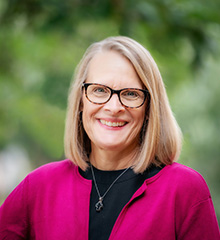As innovation becomes a buzzword, it’s easy for church leaders to reduce it to a trend. But how might it play a powerful role in renewal?
In week one of my innovation and ministry class, I ask students to define innovation. Their definitions focus primarily on innovation as invention—novel ideas, new practices, and/or breakthrough technologies. While this understanding of innovation isn’t wrong, it’s thin and robs innovation of its ability to reframe complex dilemmas and connect problems to human realities.
The word innovation comes from the Latin word innovare, which means renew. It’s the process of renewing personally and communally, of nurturing life, especially after a crisis or fallow time. Its efforts can be modest or spark a movement.
Ministry is also about cultivating life: nurturing relationships, reconciling brokenness, and shedding light into dark places so all of creation may live abundantly. Ministry tethers renewal to the one who creates and redeems by joining our personal and collective action with God’s activity.
Today, we don’t have to look far to see the need for renewal in the world. Perhaps a deeper look at innovation could help us reimagine the renewing aspect of ministry.
Innovation as discernment and experimentation
Innovation renews as people adopt new practices through experimentation. In other words, we act our way into renewal, not think our way into it.
Innovation is novel, but its novelty must serve some end. Many congregations have used innovation to attract people. While new music or communication methods may catch people’s attention and create energy, congregational renewal must go deeper. Therefore, innovation begins with discerning God’s calling for us at this time, not brainstorming clever ideas.
Discernment is grounded in listening—to people’s lived experiences and to God. Once congregations have discerned what they are called to be and do, brainstorming and experimenting follow. Discerning and adopting new practices are more iterative than linear; in other words, it requires collaboration, feedback, and a lot of trial and error.
Innovation as changing the way we see
Innovation leans into the present with an eye to the future. As we, personally and communally, enhance our capacity for innovation, we learn to see a future not yet realized.
Faith also has a transformational dimension—a dynamic relationship with a living God. Deepening our relationship with God changes how we see the world. Where we once could see only challenges, brokenness, and insufficiencies, God helps us see possibilities, healing, and fullness.
This transformation in the way we see is not a one-time event, but an ongoing, life-long process. New ideas, practices, and inventions awaken us to different possibilities and angles of vision, which change our actions and experiments, which again change the way we see.
Two kinds of innovation
Imagine a continuum with steady, slow changing environments on one end and complex, unpredictable environments on the other end.
Learning happens in all environmental conditions, but the orientation is different. In steady conditions, learning is oriented toward the past; in complex conditions, it is oriented toward the future.
Innovation in steady conditions works with existing values and the established paradigm. This developmental view is known as sustaining innovation, which entails a group of thinkers offering inventions to the masses that will either be adopted or rejected.
Innovation in complex conditions works differently. Within these conditions, new ideas and approaches begin in particular networks. Over time, these new practices take hold and dislodge current patterns, becoming more mainstream and breaking down established paradigms. This view is known as disruptive innovation. (For more on sustaining and disruptive innovation, see Clay Christensen in The Innovator’s Dilemma).
As the formal expressions of church experience decline, disruptive innovation will become more necessary. Discovering and working with emergent values and networks is key to renewal in complex conditions. It is time to ask different questions and open ourselves to new ways of being God’s church in the world.
Innovation as renewal
God’s command to love God and our neighbor remains, and ancient practices continue to form Christian communities and remind us of our identity as God’s people. Yet how we participate in God’s mission and love our neighbor will change, as will the ways we employ ancient Christian practices.
Because the path to the future is not clear and the need for renewal urgent, church leaders must expand their imagination. Sharing the good news of the gospel requires connecting with the particularities of time and place and wrestling with the complexities of our time. Might the discipline of innovation help us discern our way forward and transform our way of seeing?
Innovation might be a trendy word, but its essence is more than a fad. Given our current conditions, a robust understanding of innovation, combined with a missional understanding of church and reliance on the Holy Spirit, could point the church in the right direction.
About the Author
Terri Martinson Elton is the Associate Professor of Leadership at Luther Seminary. Having served 20 years in congregational and synodical leadership before coming to Luther, Terri is deeply committed to accompanying congregations in discovering new expressions of ministry. Terri has co-authored a book on Leading Congregations and Nonprofits in a Connected World with Rabbi Hayim Herring, researched and written about Cultivating Teen Faith, and has a new book, Journeying the Wilderness: Forming Faith in the 21st Century, coming out in Spring 2020.
Photo by Rohan Makhecha on Unsplash

